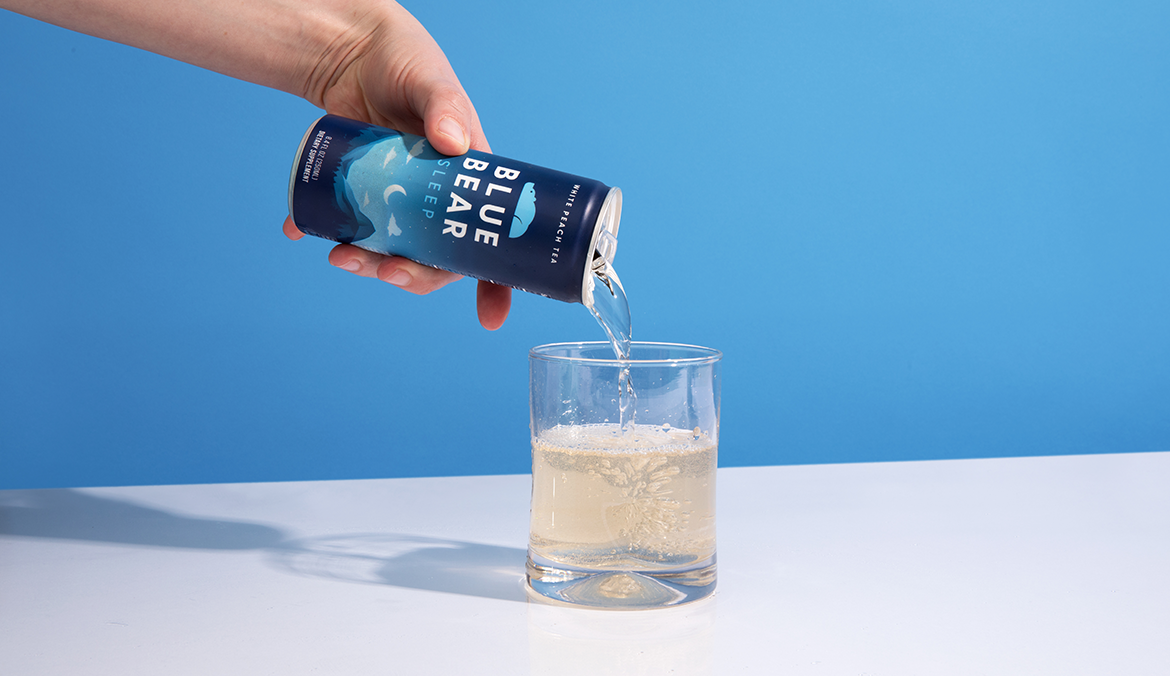Blue Bear Sleep Drink Review: My Experience with 6 Sleep-Promoting Ingredients
Core Concepts
The author explores the effectiveness of Blue Bear Sleep drink in promoting better sleep by analyzing its key ingredients and personal experience.
Abstract
Trying to improve her sleep quality, the author tested Blue Bear Sleep, a functional drink containing six primary sleep-supporting ingredients. The drink includes melatonin, L-theanine, GABA, chamomile, lavender, and ashwagandha. Each ingredient is discussed in detail regarding its potential benefits for relaxation and better rest. The author shares her experience of drinking Blue Bear every night for a week, noting improvements in relaxation levels and vivid dreams but also some restlessness on certain nights. Overall, finding the right dosage seems crucial for optimal results.
Customize Summary
Rewrite with AI
Generate Citations
Translate Source
To Another Language
Generate MindMap
from source content
Visit Source
www.wellandgood.com
This Sleepytime Beverage Has 6 of the Top Sleep-Promoting Ingredients—Here’s the Impact It Had on My Ability to Snooze Soundly
Stats
According to estimates, 50 million to 70 million people in the U.S. have ongoing sleep disorders.
Each can of Blue Bear contains five milligrams of melatonin.
Blue Bear contains 102 milligrams of L-theanine per can.
Ashwagandha may be effective in helping treat and prevent adrenal fatigue.
Quotes
"I began noticing that my body was a bit more relaxed and my usual baseline anxiety levels were seemingly calmer."
"Finding the sweet spot for dosage is key—for me, it’ll likely involve drinking only half a can of Blue Bear a night."
Key Insights Distilled From
by Maki Yazawa at www.wellandgood.com 09-20-2023
https://www.wellandgood.com/blue-bear-sleep-drink/
Deeper Inquiries
How do different dosages of melatonin affect individuals' sleep patterns?
Melatonin, a hormone that regulates the sleep-wake cycle, can have varying effects on individuals' sleep patterns depending on the dosage. In general, lower doses of melatonin (around 0.5 to 1 milligram) are often recommended for promoting relaxation and reducing the time it takes to fall asleep. On the other hand, higher doses (up to 5 milligrams) may be more effective for individuals who struggle with staying asleep throughout the night or have circadian rhythm disorders.
It's important to note that individual responses to melatonin can vary significantly. Some people may find that even low doses make them feel groggy in the morning, while others may require higher doses to see any noticeable impact on their sleep quality. Additionally, taking too much melatonin can lead to adverse effects like dizziness, headaches, or vivid dreams.
What are other natural ways to promote relaxation before bedtime besides using supplements like Blue Bear?
There are several natural methods and practices that can help promote relaxation before bedtime without relying solely on supplements like Blue Bear:
Establishing a bedtime routine: Creating a consistent pre-sleep routine signals your body that it's time to wind down and prepare for rest.
Limiting screen time: Exposure to blue light from screens can interfere with your body's production of melatonin, making it harder to fall asleep. Try turning off electronic devices at least an hour before bed.
Practicing mindfulness or meditation: Mindfulness techniques and meditation can help calm racing thoughts and reduce stress levels before bedtime.
Engaging in gentle exercise: Activities like yoga or stretching exercises can relax both your mind and body in preparation for sleep.
Herbal teas: Chamomile tea is known for its calming properties and has been used traditionally as a natural remedy for promoting relaxation before bed.
Creating a comfortable sleep environment: Ensure your bedroom is conducive to good sleep by keeping it dark, quiet, cool, and comfortable.
By incorporating these natural strategies into your nightly routine, you may find it easier to unwind and prepare yourself for restful slumber without relying solely on supplements or medications.
How does the impact of vivid dreams on sleep quality vary among individuals?
The impact of vivid dreams on an individual's overall sleep quality can vary significantly based on personal preferences and experiences during dream states:
Positive Impact: For some individuals, having vivid dreams may enhance their overall sleeping experience by adding depth and richness to their subconscious processing during REM (rapid eye movement) cycles.
2..Negative Impact: However,,for others ,vivid dreams might disrupt their abilityt o achieve deep,sound slep,resultingin feelings f fatigueand unrestedness upon waking up .In some cases,vivid dreasmcan also cause anxietyor disturb emotional well-being if they involve unsettling content
3..Neutrality: Thereare thosewho remain unaffectedbythe intensityoftheirdreams,andtheydo notnoticeany significantdifferencein theirsleeppatternsregardlessf howvividtheirdreamsmayb .
Ultimately,theimpactofvividdreamsonsleepqualityishighlyindividualizedandsubjective.Whatmayenhancesleepforonepersoncoulddetractfromitforanother.Itisimportanttoconsiderpersonalpreferencesandsensitivitieswhenassessinghowvividdreamsaffectonesoverallrestfulnessduringthenight
0
